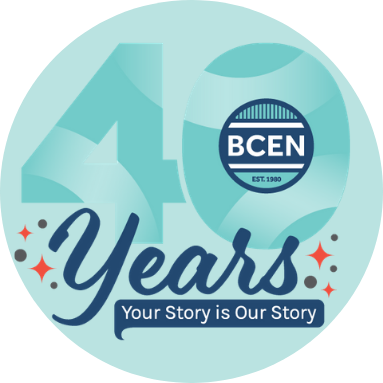What was the first exam like? Was it a pencil and paper test?
Oh yes, with #2 pencils! Remember, it was very early on. Rotary phones and no computers yet!
How long did the exam take?
I think the test was supposed to last four hours. I think it was 250 questions at that time. I recall I finished before the time limit.
How did you get your results?
We got a letter in the mail and it took 4-6 weeks. That was the norm at the time for licensing examinations that were given to take that long. It was about a month or six weeks, as I recall, that we finally got this golden letter in the mail that said we passed!
How did you let people know you were a CEN?
I very proudly had CEN added to my name tag! The university leadership honored and recognized me immediately for my achievement. I remember getting calls from fellow nursing colleagues when they received their letters, too!
Why did you maintain your certification? What did that bring you?
Certification was, and is, a measure of professionalism of a specialty area and it was important for me to be recognized for that. It was new in the world of nursing and not many people attained a specialty certification. Testing was a common way to showcase your competence in your specialty area. It was a standardized process recognized nationally. Professionally, I wanted that recognition. I was not just claiming to be a specialist in emergency nursing. I had a credential that proved I could claim the specialty.
If you had to give some advice to new nurses, what would that be?
Join your professional organization! You can get many resources that will guide you as you become more and more competent in your practice of emergency nursing – access those resources regularly. Studying does not stop the day you graduate from nursing school. Learning is a lifelong experience and a lifelong journey. It’s important that you keep up your learning skills as a professional, and it’s important that you are aware of what’s going on professionally in nursing and in all of the different aspects of healthcare that relate to nursing and emergency nursing – including advocacy and getting involved in governmental affairs, legislative affairs, to know the impact of those on nursing.
Be a lifelong learner and be aware of what’s going on in the nursing profession around you, and be proud of things that describe you as a professional, like CEN, for example, or any of the other BCEN certifications that you choose as you progress in your journey as an emergency nurse.
What would you say to a nurse leader or administrator about the value of board certification?
Credentialing, specifically board credentialing, is one of the things that describes you as a professional. It says to the public, as well as administrators, that this nurse has integrated their practice, experience, and problem-solving, into a vehicle of testing that proves they possess a theoretical body of specialty nursing knowledge. Certification is the package that showcases a person’s competency in emergency nursing based on a multitude of ever-changing resources.

